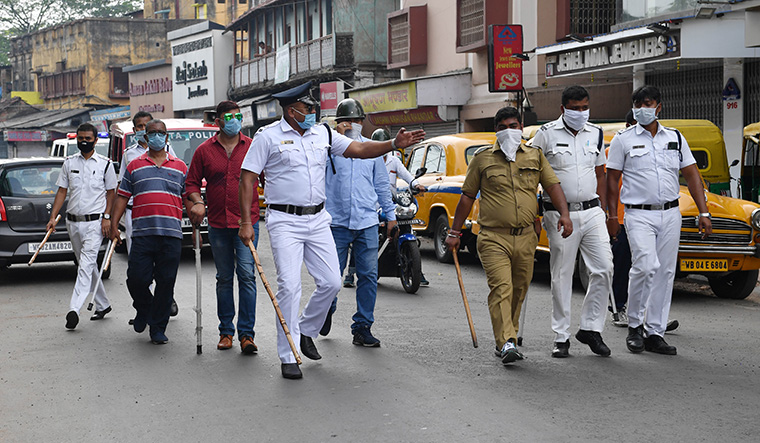Even while the WHO continues to deny that India has entered the most dangerous stage of community transmission, a latest study by the Indian Council of Medical Research (ICMR) suggests otherwise. The study, based on random sampling tests conducted on patients with Severe Acute Respiratory Illnesses (SARI), sees a spike in the number of coronavirus positive cases among such patients with no travel history.
As many as 39.2 per cent of SARI patients, who later tested positive for the coronavirus, neither had a history of travel nor had contact with a positive patient, the data compiled by ICMR showed. These patients were reported from 36 districts of 15 states. "These districts need to be prioritised to target COVID-19 containment activities," ICMR says in the report.
The ICMR study offers substantial evidence to prove community transmission in India. The study is based on weekly random sampling tests conducted for five weeks between February 15 and April 2.
In the weeks before March 14, no SARI patient had tested positive for coronavirus. But when the policy was changed--instead of random tests, all SARI patients were tested--two of 106 patients were found positive between March 15 and March 21.
Between March 22 and March 28, of the 2,877 patients tested, 48 (1.7 per cent) were found positive. Between March 29 and April 2, 54 out of 2,069 SARI patients, 54 (2.6 per cent) tested positive for coronavirus.
Altogether, out of 5,911 SARI patients, 104 (1.8 per cent) have tested positive for COVID-19. These cases were from 52 districts in 20 states and union territories.
The ICMR in its study highlights that COVID-19 containment activities need to be targeted in districts reporting positive cases among SARI patients and stated that intensifying sentinel surveillance for COVID-19 among SARI patients may be an efficient tool to effectively use resources towards containment and mitigation efforts, it said.
The chances of getting infected among SARI patients increased from 0 per cent before March 14, to 2.6 per cent by April 2.
In 15 Indian states, more than one per cent of SARI patients were COVID-19 positive. Also, males accounted for a higher number of COVID-19 cases and also patients aged above 50 years of age. Data on exposure history was not available for 59 per cent cases.


